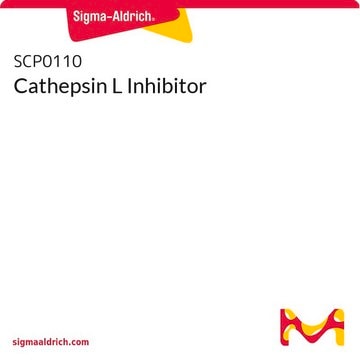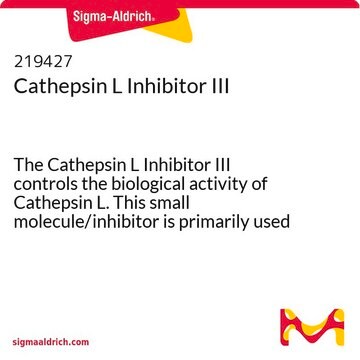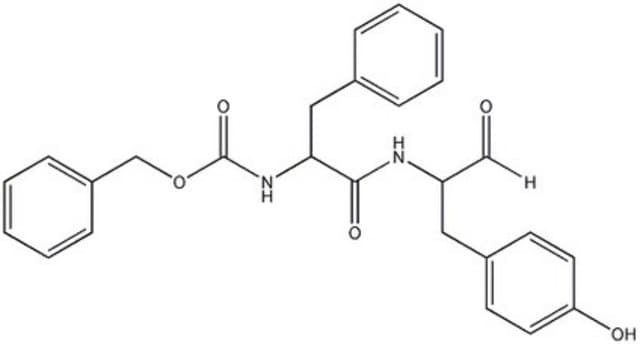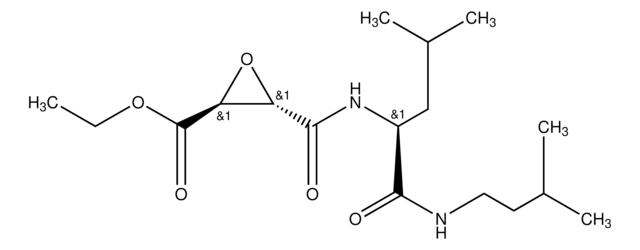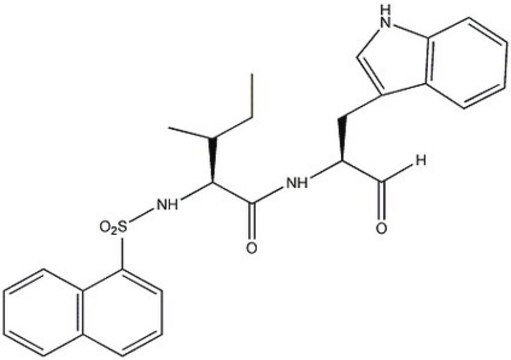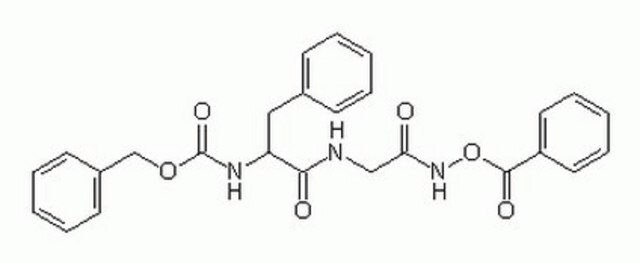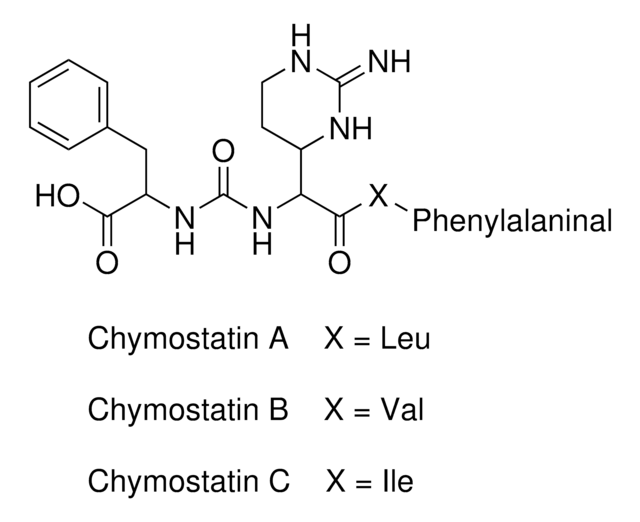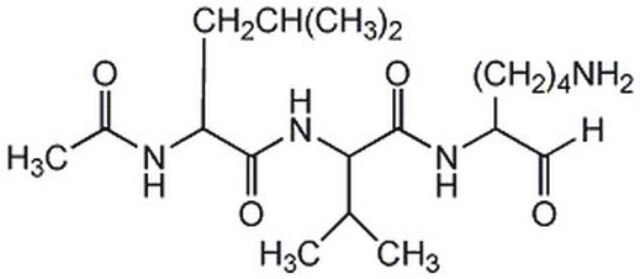219421
Cathepsin L Inhibitor I
The Cathepsin L Inhibitor I, also referenced under CAS 108005-94-3, controls the biological activity of Cathepsin L. This small molecule/inhibitor is primarily used for Protease Inhibitors applications.
Synonym(s):
Cathepsin L Inhibitor I, Z-FF-FMK
About This Item
Recommended Products
Quality Level
form
solid
manufacturer/tradename
Calbiochem®
storage condition
OK to freeze
desiccated
color
white
solubility
DMSO: 20 mM
shipped in
ambient
storage temp.
−20°C
SMILES string
FCC(=O)C(NC(=O)C(NC(=O)OCc3ccccc3)Cc2ccccc2)Cc1ccccc1
InChI
1S/C27H27FN2O4/c28-18-25(31)23(16-20-10-4-1-5-11-20)29-26(32)24(17-21-12-6-2-7-13-21)30-27(33)34-19-22-14-8-3-9-15-22/h1-15,23-24H,16-19H2,(H,29,32)(H,30,33)
InChI key
CAILNONEKASNSH-UHFFFAOYSA-N
General description
Biochem/physiol Actions
cathepsin L
Warning
Sequence
Reconstitution
Analysis Note
Other Notes
Esser, R.E., et al. 1994. Arthritis Rheum. 37, 236.
Shaw, E., et al. 1993. FEBS Lett.334, 340.
Legal Information
Storage Class
11 - Combustible Solids
wgk_germany
WGK 1
flash_point_f
Not applicable
flash_point_c
Not applicable
Certificates of Analysis (COA)
Search for Certificates of Analysis (COA) by entering the products Lot/Batch Number. Lot and Batch Numbers can be found on a product’s label following the words ‘Lot’ or ‘Batch’.
Already Own This Product?
Find documentation for the products that you have recently purchased in the Document Library.
Our team of scientists has experience in all areas of research including Life Science, Material Science, Chemical Synthesis, Chromatography, Analytical and many others.
Contact Technical Service